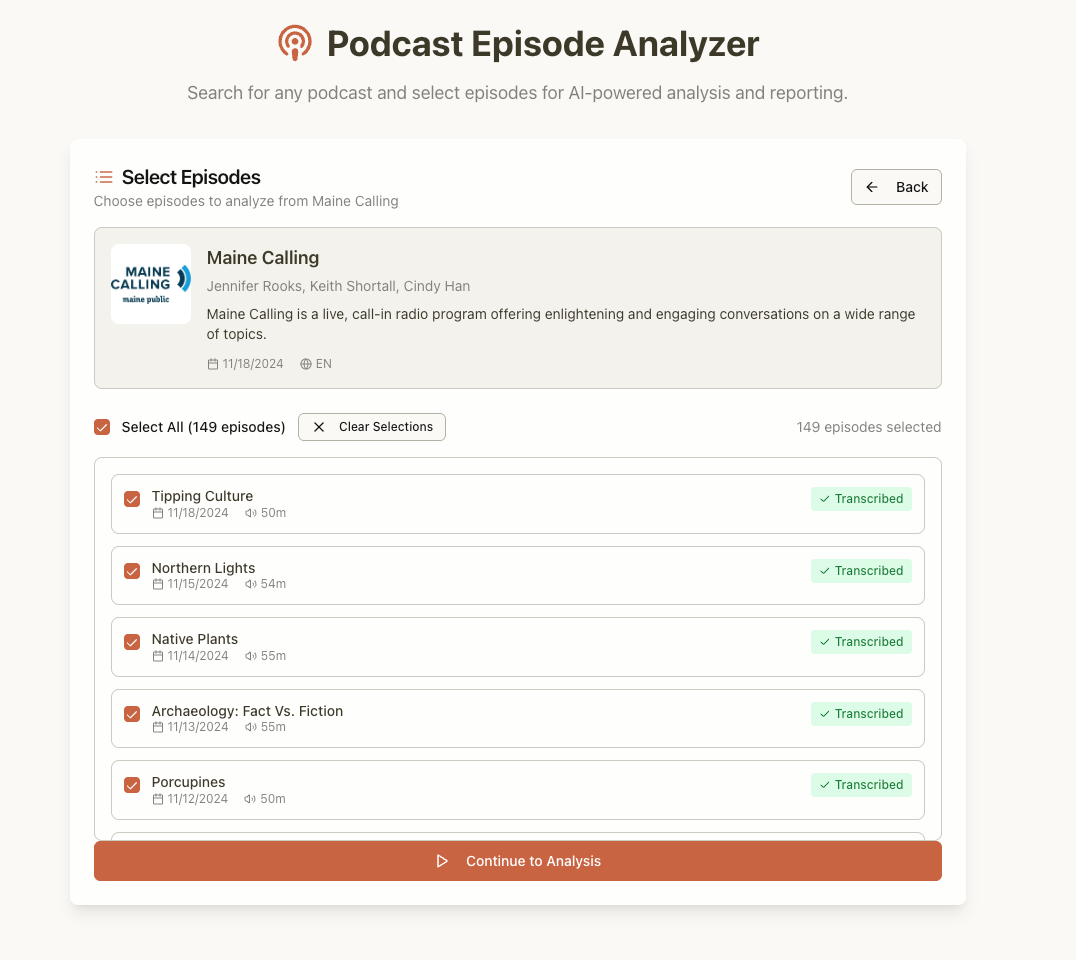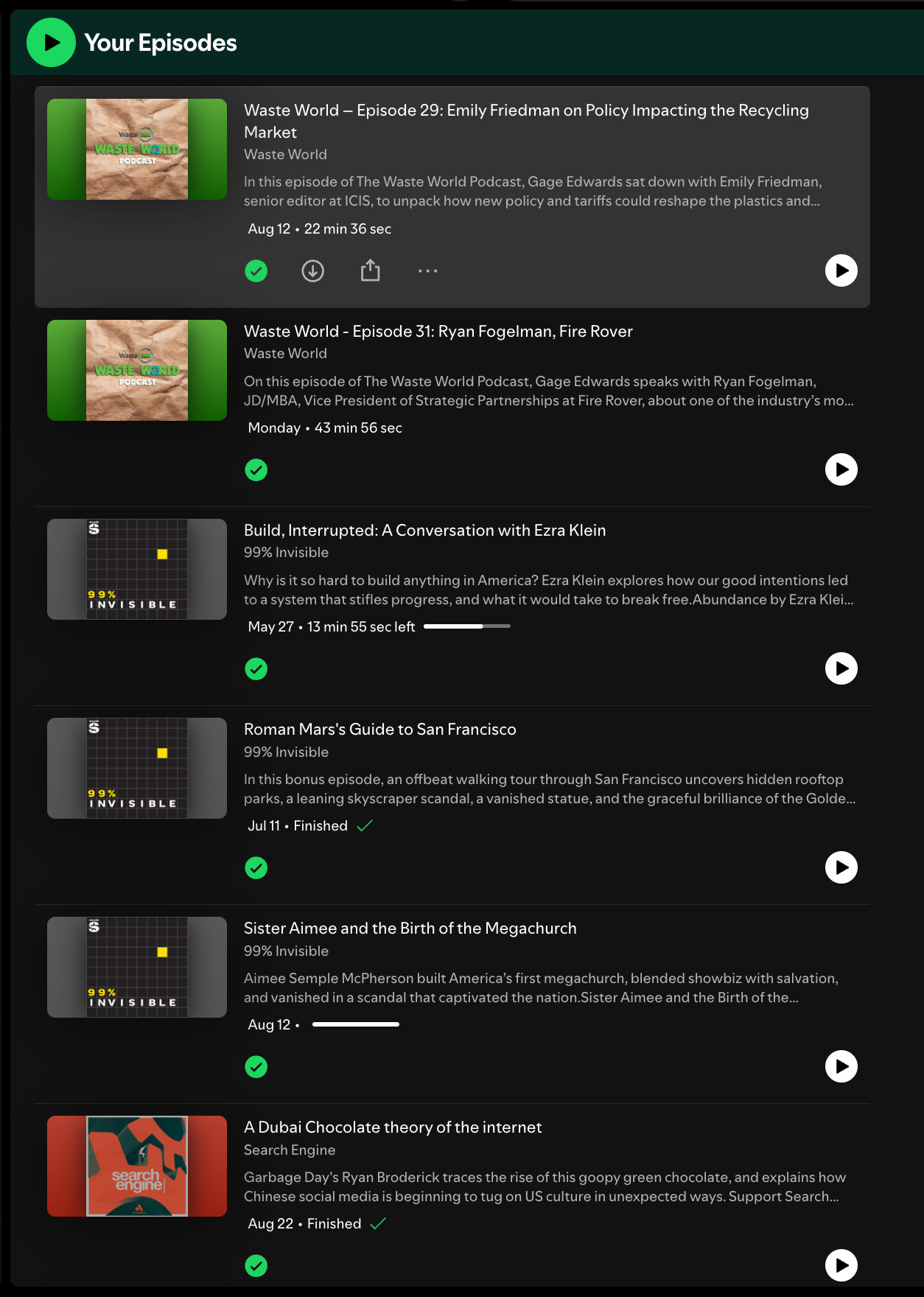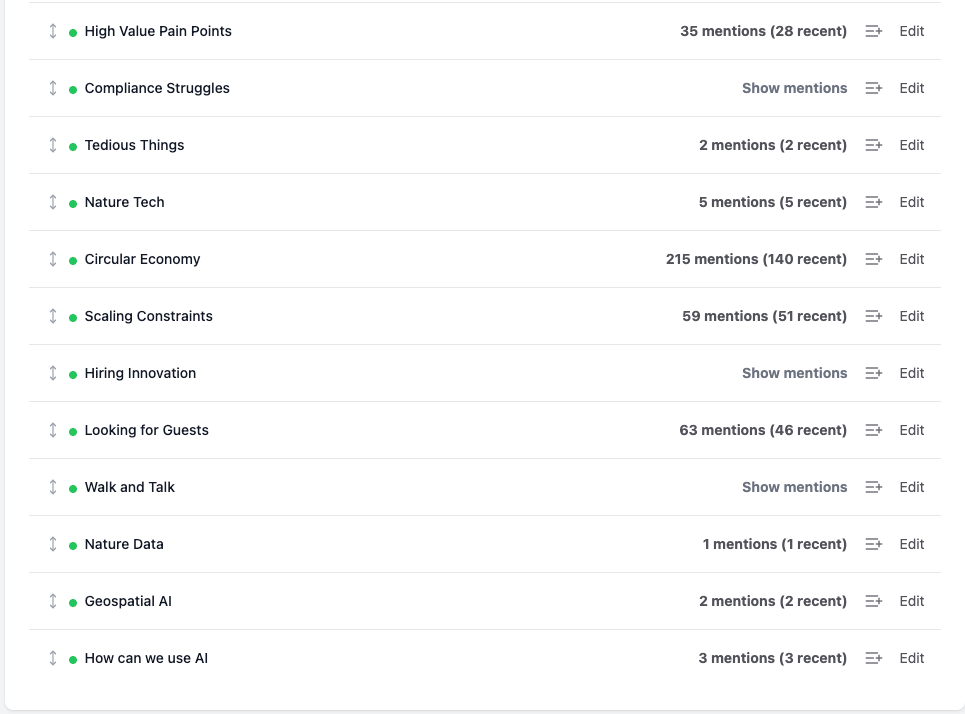From Audio to Insights

I'm a student of Podcast University.
When I want to learn about a topic, after exhausting normal searches, I typically turn to Spotify, find a handful of episodes on the subject, and listen to them while going for a walk.
My wife cringes when my bluetooth headphones disconnect, and she catches a glimpse of how I listen to podcasts. I'm a 2xer — one of the estimated 2-5% of (slightly deranged) people who listen to podcasts at a faster speed.
My favorite entertainment podcasts fall into a genre I define as persistent curiosity about the seemingly mundane, including Search Engine, 99% Invisible, and Reply All.
The rest of my audio diet consists of educational content. I use podcasts to:
- Research companies via founder or employee interviews
- Do a first-pass on a topic I want to learn more about, like "industrial symbiosis"
- Prep for a trip by curating episodes about a location's culture, history, and geography
- Find niche interviews with experts discussing challenges I'm currently grappling with, like "How to conduct customer interviews."

For all my podcast obsession, I've always felt I'm barely scratching the surface. On the written internet, I can easily search across blog posts, Reddit, Twitter, research papers, and forum discussions, and analyze the content with ease.
Podcasts are different. Audio is more challenging to transcribe, search, and index, so this massive repository of human knowledge remains largely untapped.
Two breakthroughs changed this:
- Transcription costs have plummeted with improved accuracy
- LLMs make it possible to search, analyze, and summarize those transcripts easily
This struck me as a major opportunity. I started by transcribing my own podcasts and experimenting with different prompts, but then I stumbled upon a database of nearly 40 million already transcribed episodes. That's when I shifted to building custom tools, like export features and AI analysis on top of the data, allowing me to do things like:
- Advanced Search: Searching across millions of podcast transcripts for specific keywords or phrases
- Keyword Alerts: Getting notified whenever specific keywords appear in new podcast episodes
- Deep Research: Bulk downloading episodes and their transcripts so you can query and analyze with AI
- Custom Summarization: Generating weekly digests from a list of podcasts
I found practical applications: extracting product ideas from business interviews, identifying potential leads for automation projects, and conducting market research.

I also went on some wonderfully impractical field trips, such as stumbling upon a podcast for lottery winners who believe they “manifested” their success, or searching for the phrase “keeps me up at night” to learn about collective anxieties.

I've been using this podcast database in the same way I use Google. The critical difference is that the results are raw, person-to-person conversations about niche topics. It's an entirely different realm of knowledge.
I have ideas about what could be built on top of this conversational data — everything from customer research tools to a podcast booking agency. Imagine answering questions like:
- What are people saying about my brand (or competitors) across all podcasts?
- How do customers in my target market actually speak? What phrases or jargon are specific to them?
- What specific tactics from industry conversations can I apply to my business?
- What new phrases or ideas are bubbling up on influential podcasts that will become mainstream vocabulary next month?
- This kind of deep research requires expensive data access and custom tooling that most people can't justify building. I'm already paying for the database and have built the tools, so I want to test them on new projects.


I'm offering podcast research as a paid service: you tell me what you're trying to learn, and I'll use my database and custom tools to find the answers.
Curious? Let's chat.




